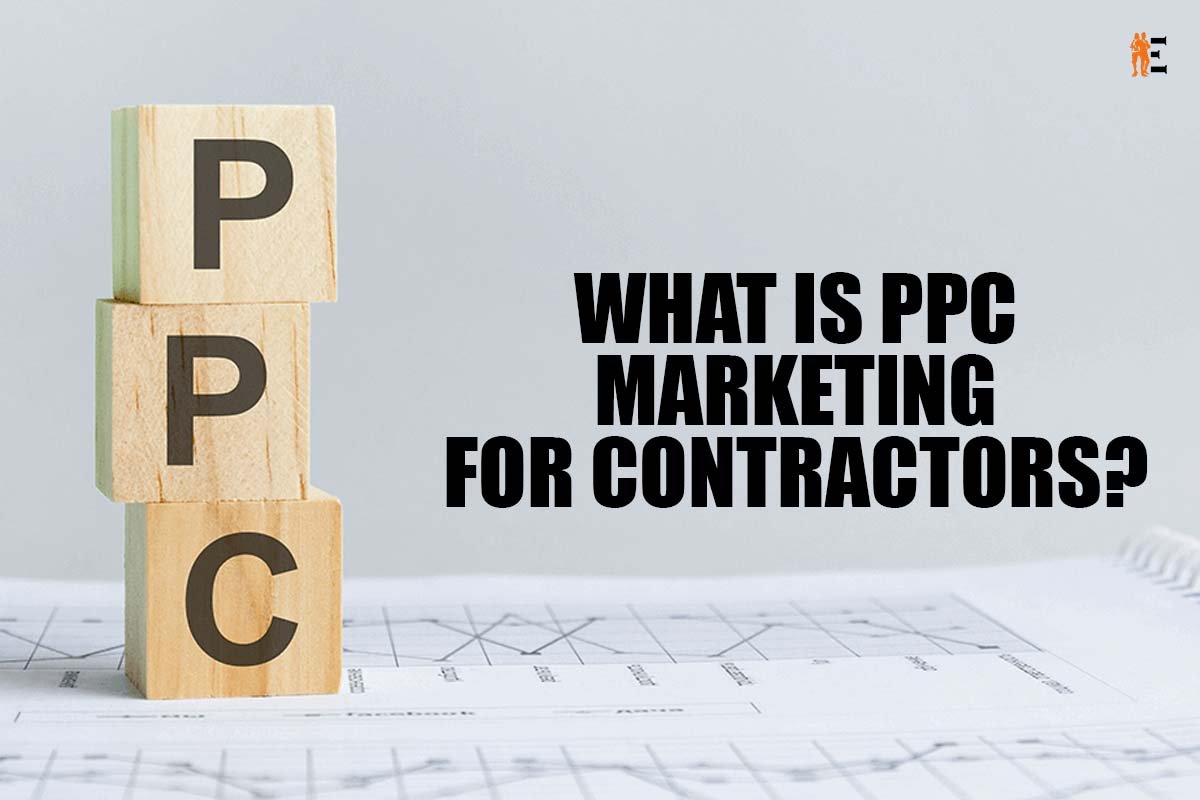The most popular kind of sponsored search advertising is known as (pay-per-click) PPC Marketing for Contractors. Pay-per-click advertising supersede organic results. And there’s a little “ad” box off to the left to let you know what they are. Advertisements in the form of pay-per-click (PPC) ads should be included in the construction industry’s total marketing budget.
So, let’s define PPC Marketing for Contractors. In pay-per-click (PPC) advertising, the business only forks over cash when a potential customer actually clicks on the ad. Thus, PPC is a paid method of acquiring visitors, as opposed to SEO, which improves results in search engines via natural means. PPC’s only real drawback, as comparison to SEO, is that it costs money to use. The paid search advertising are shown above the organic results, which is a plus.
Choosing a target audience, a budget, and a specific objective are the first steps in developing a pay-per-click advertisement. Following that, you’ll need to craft some words and an overall layout for the landing page. It’s important to track the ad’s stats once it goes live so it can be fine-tuned.
Here is everything you need to know about PPC marketing for contractors?;
1. PPC for contractors – How to get started?
It’s absolutely feasible to handle pay-per-click advertising preparations alone. While PPC Marketing for Contractors strategies in theory might be easily planned, in practice they can be everything but. Quite a few factors are involved. The failure of your whole PPC campaign might be the consequence of a mistake in a single stage. So, here are a few things to think about before you get started:
2. Do in-depth research on appropriate keywords.

Find out what people are searching for so you can utilize that information to your advantage and bring in new customers. Because of the high frequency of searches for a single term, you may get clicks from people who aren’t really interested in what you’re selling. As a result, you need to use brand-specific, generic, relevant, and competitive keywords. You may be even more particular by using chunky middle and long-tail keywords.
3. Create ad groupings out of related keywords
Ad groups should be created from the discovered keywords. Google defines an ad group as a collection of advertisements that share a common set of keywords. These should be categorized accordingly. Make an effort to sort them by what they’re buying. Every campaign has at least one ad group, which is a collection of related advertisements and keywords. Ad groupings out of related keywords is important for PPC Marketing for Contractors.
4. Maintain consistency between the ad copy and the landing page copy.
Whatever it is that you’re advertising, your landing page should reflect that. Disorienting visitors is easy if you use a different language, tone of voice, visuals, or color scheme than they are used to. So, be sure that what you’re selling and what you’re saying are the same in both settings. If there is a disconnect, visitors will leave your landing page without taking the action you want them to do.
5. Conversion-focused optimization of landing pages.
Make sure your landing page is optimized in every way possible for maximum results. You need a catchy title, easy-to-read language, a straightforward form without too many fields, and a prominent button prompting the reader to take action. Your landing page, similarly, has to be responsive so that it displays properly on any device.
6. Keep an eye on anything you’re searching for
Finding out which keywords are leading to conversions and which are bringing in unnecessary traffic requires tracking all search phrases. The use of negative keywords might help you get rid of any unnecessary sentences. You may learn about your landing page’s performance over time in relation to certain keywords by keeping track of how they’re now ranked.
7. Put your ad to the test, and then monitor its performance.

A/B testing compares two variations of a landing page, each with a distinct set of characteristics. Check the copy, images, and call to action. Whichever one yields the greatest results may be used. Ad performance data, such as click-through rate, should therefore be tracked and monitored on a consistent basis. CPC, conversion rate, number of leads generated, number of calls made, number of sales made, and total income.
8. Why invest in PPC marketing for your construction company
No matter how big or small a construction company is, PPC Marketing for Contractors may provide excellent results with careful planning. In addition, any expenditure will be worthwhile in the end. You may now discover how to utilize PPC to grow your construction firm with the knowledge of what to include in your PPC marketing. Here are some ways in which pay-per-click advertising might help your building company:
9. Develop a spending plan that takes everything into account.
Set your campaign spending limit before you launch any initiatives. Since your spending is within your control, you may adjust it up or down at any time. Your budget, desired number of leads, and existing conversion rate will all play into the final cost.
10. Invest only on successful ad clicks.
Ads in a PPC Marketing for Contractors format cost money only if they are clicked on. You may adjust your budget as needed based on how competitive a certain set of keywords is. As was previously indicated, your cost per click will be based on the original budget you set. Modifying this to a higher or lower value is always an option.
11. Add to your current advertising initiatives.
Pay-per-click (PPC Marketing for Contractors) advertising is effective, but it should not stand alone. Paid search advertising might complement your current marketing strategy. Plus, it’s simple to include into your existing or planned marketing strategies. It can back up as many campaigns as you like. Events, new offerings, and webinars may all be promoted in this way.
12. Maximize your profits.
Pay-per-click (PPC Marketing for Contractors) advertising offers a greater ROI than traditional marketing strategies since you only pay when someone clicks on your ad. When figuring out your return on investment, take into account a wide range of KPIs such as your click-through rate (CTR), quality score, impression share, conversion rate, and wasted expenditure.

Pay-per-click advertising is a cost-effective and dependable marketing option for companies of all sizes and in all sectors. It’s perfect for any construction company, no matter how tight their budget is, that wants to increase website visitors. Because of this, pay-per-click advertising is ideal for building firms and contractors.
Bottom line:
Digital marketing is the future of marketing and PPC has all the potential to be amongst the most important marketing strategies implemented by businesses. We hope you find these 12 ways to maximize PPC marketing for contractors helpful.
For more insightful content, keep visiting theentrepreneurreview.com.











